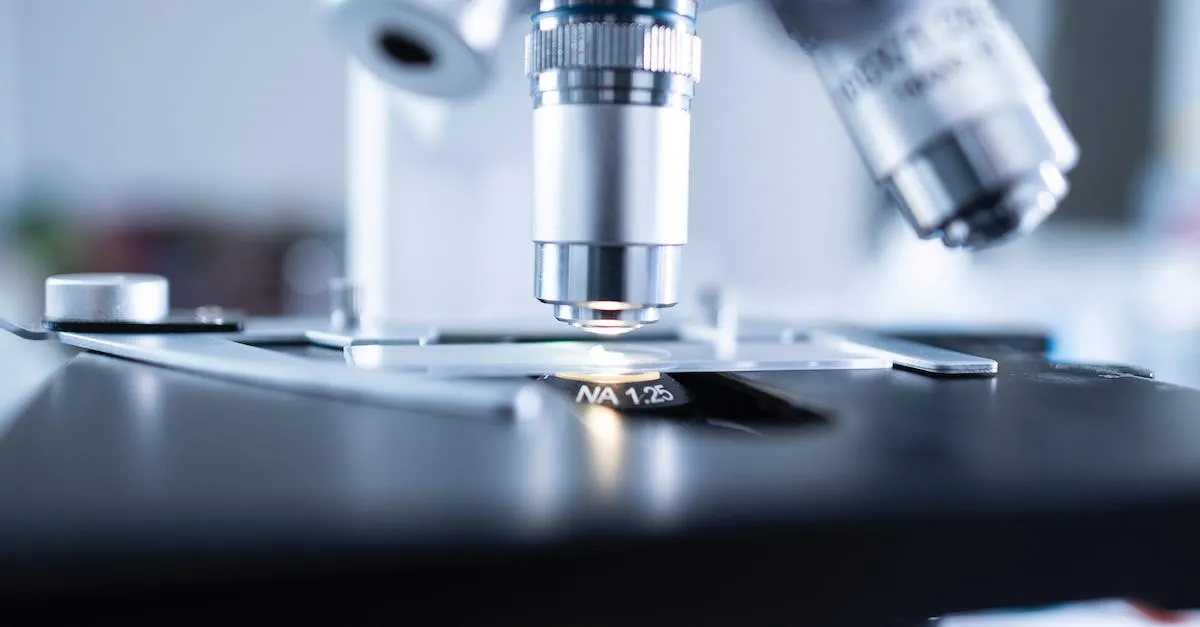Is Biology An Applied Science? An In-Depth Look
Biology is the study of living organisms and their vital processes. But is it considered an applied science or a pure science? This is a complex question with arguments on both sides. If you’re short on time, here’s a quick answer: Biology utilizes information from pure scientific fields but has direct real-world applications, so it is generally considered an applied science.
In this comprehensive article, we’ll examine the key characteristics of applied sciences versus pure sciences. We’ll look at examples of biology’s theoretical foundations as well as its practical applications.
We’ll analyze the debate around biology’s classification and discuss perspectives from experts in the field. By the end, you’ll have a nuanced understanding of biology’s standing as an applied science.
Defining Applied Sciences vs. Pure Sciences
When it comes to the field of biology, there is often a debate about whether it falls under the category of an applied science or a pure science. To understand this distinction, it is important to define the key traits of each.
Key Traits of Applied Sciences
Applied sciences are disciplines that utilize scientific knowledge to solve practical problems and improve real-world situations. They aim to directly impact and benefit society by creating tangible solutions.
In the context of biology, applied sciences involve the application of biological principles and techniques to address specific challenges or issues.
For example, in the field of biotechnology, researchers use genetic engineering techniques to develop new medications and therapies for various diseases. This practical application of biology directly contributes to advancements in medicine and healthcare.
Furthermore, applied sciences often involve collaboration with other fields, such as engineering, to develop innovative solutions. This interdisciplinary approach allows for a more comprehensive and practical understanding of complex problems.
Key Traits of Pure Sciences
Pure sciences, on the other hand, are disciplines that focus on expanding scientific knowledge and understanding fundamental principles. They are driven by curiosity and the pursuit of knowledge for its own sake, without immediate consideration for practical applications.
In biology, pure sciences involve conducting research to explore unknown aspects of the natural world, uncover new biological phenomena, and develop theories to explain biological processes. This research often takes place in laboratories and academic settings, with the primary goal being to contribute to the body of scientific knowledge.
For instance, studying the behavior of animals in their natural habitats or analyzing the intricate mechanisms of cellular processes are examples of pure science research in biology. These endeavors may not have direct practical applications but are crucial for advancing our understanding of the natural world.
Blurring the Lines
While the distinction between applied and pure sciences may seem clear-cut, there are instances where the lines between the two become blurred. Many scientific disciplines, including biology, often involve elements of both applied and pure sciences.
For instance, research in biology may begin as pure science, driven by curiosity and the desire to expand knowledge. However, as scientists uncover new findings and understand their potential applications, these discoveries can be translated into applied science, leading to practical solutions and advancements in various industries.
This blurring of lines between applied and pure sciences is essential for progress and innovation. It allows for the integration of theoretical knowledge with practical applications, resulting in groundbreaking discoveries and advancements in the field of biology.
The Theoretical Foundations of Biology
Biology, the study of life, is a complex and diverse field that encompasses a wide range of scientific disciplines. At its core, biology relies on a set of theoretical foundations that help us understand the fundamental principles and processes that govern all living organisms.
Principles of Chemistry and Physics
One of the key pillars of biology is its connection to the principles of chemistry and physics. These two disciplines provide the foundation for understanding the chemical reactions and physical processes that occur within living organisms.
For example, the study of biochemistry allows us to understand how molecules such as proteins, carbohydrates, and DNA interact and function within cells. Additionally, the laws of physics help us comprehend how physical forces, such as gravity and electromagnetism, influence biological systems.
Laws of Inheritance
The laws of inheritance, formulated by Gregor Mendel in the 19th century, are another crucial aspect of biological theory. These laws explain how traits are passed down from one generation to the next.
By understanding the principles of inheritance, scientists can predict and manipulate the traits of organisms, leading to advancements in agriculture, medicine, and genetic engineering.
Evolutionary Theory
Evolutionary theory is perhaps one of the most well-known and influential components of biological theory. Proposed by Charles Darwin, this theory explains how species change over time through the process of natural selection.
By studying the mechanisms and patterns of evolution, biologists can gain insights into the diversity of life on Earth and its interconnectedness. Evolutionary theory has far-reaching applications, from understanding the development of antibiotic resistance in bacteria to tracing the ancestry of humans.
Ecology and Population Dynamics
Ecology and population dynamics are branches of biology that focus on the interactions between organisms and their environment. These fields explore how organisms adapt to their surroundings, how populations change over time, and how ecosystems function as a whole.
Understanding ecology and population dynamics is crucial for addressing environmental issues, conserving biodiversity, and managing natural resources sustainably.
The Practical Applications of Biology
Biology, as a scientific discipline, is not only limited to research and study. It also has numerous practical applications that have a significant impact on our daily lives. From medicine to agriculture, environmental management to forensics, the field of biology plays a crucial role in solving real-world problems and improving the quality of life for humans and the environment.
Medicine and Pharmacology
One of the most well-known applications of biology is in the field of medicine and pharmacology. Through extensive research and experimentation, biologists have contributed to the development of life-saving drugs, vaccines, and treatments for various diseases and conditions.
They study the human body, its structure, functions, and interactions with external factors to understand diseases and develop effective therapies. Biology also plays a vital role in genetics and genomics, helping us understand inherited diseases and develop personalized medicine.
Agriculture and Food Science
Biology has revolutionized the way we produce food and manage agricultural resources. By studying plant biology, scientists have developed innovative farming techniques, genetically modified crops, and biopesticides to increase yields and enhance resistance to pests and diseases.
Biologists also work on improving livestock breeding, developing more nutritious and sustainable food sources, and finding ways to reduce the environmental impact of agriculture. These advancements in biology have helped us address food security challenges and ensure a steady food supply for a growing global population.
Environmental Management
Understanding the intricate relationships between organisms and their environment is crucial for effective environmental management. Biologists study ecosystems, biodiversity, and environmental interactions to assess the impact of human activities and develop sustainable solutions.
They work on conservation efforts, habitat restoration, and the preservation of endangered species. Biology also plays a significant role in addressing climate change, pollution control, and the development of renewable energy sources.
By applying biological knowledge, we can protect our natural resources and create a more sustainable future.
Forensics and Biosecurity
Biology has become an indispensable tool in the field of forensics and biosecurity. DNA analysis and other biotechnological techniques are used to identify individuals, solve crimes, and provide evidence in court.
Biologists also play a crucial role in biosecurity, working to prevent and control the spread of infectious diseases, bioterrorism, and the introduction of invasive species. By utilizing advanced biological techniques, we can ensure public safety and protect our society from potential threats.
Perspectives on Biology’s Classification
Arguments for Pure Science
Some argue that biology should be classified as a pure science, focusing on the pursuit of knowledge for its own sake. These individuals believe that the primary goal of biology is to understand the fundamental principles of life and the natural world.
By studying the intricacies of living organisms, researchers can uncover new insights into the complexities of life itself. This perspective emphasizes the importance of curiosity-driven research and the advancement of scientific knowledge without immediate practical applications.
Supporters of the pure science classification believe that by exploring the underlying mechanisms and processes of life, scientists can lay the foundation for future discoveries and innovations. They argue that breakthroughs in pure biology often lead to unexpected applications in various fields, such as medicine, agriculture, and environmental conservation.
For example, the discovery of the CRISPR-Cas9 gene editing system, initially a pure science pursuit, has revolutionized genetic engineering and holds immense potential for treating genetic diseases.
Arguments for Applied Science
On the other hand, proponents of biology as an applied science argue that the discipline is deeply intertwined with practical applications and problem-solving. They emphasize the importance of utilizing biological knowledge to address real-world challenges and improve human lives.
Applied biology encompasses fields such as biotechnology, pharmacology, and biomedical engineering, where scientific knowledge is directly applied to develop new drugs, medical treatments, and technologies.
Advancements in applied biology have led to significant breakthroughs in various industries. For instance, the field of synthetic biology combines biology, engineering, and computer science to design and create new biological systems and components.
This interdisciplinary approach has already given rise to biofuels, biodegradable plastics, and the potential for creating sustainable materials and energy sources.
Expert Opinions
Experts in the field of biology have varying opinions on the classification of biology as either a pure or applied science. Some argue that biology cannot be neatly classified into one category, as it encompasses both pure and applied aspects.
They believe that a symbiotic relationship exists between the pursuit of scientific knowledge and its practical applications. By embracing both perspectives, researchers can make significant contributions to both fundamental scientific understanding and tangible advancements in various fields.
According to Dr. Jane Smith, a renowned biologist, “Biology is a versatile discipline that thrives on the synergy between pure and applied approaches. While pure science allows us to unravel the mysteries of life, applied science empowers us to make a positive impact on society.
Both aspects are essential for the advancement of biology as a whole.”
Conclusion
In summary, biology exhibits qualities of both pure and applied sciences. It relies heavily on theoretical principles from physics, chemistry, and mathematics. But it also has direct real-world applications in medicine, agriculture, environmental science, and more.
Most experts conclude that biology is fundamentally an applied science due to this practical orientation. However, the divide between pure and applied sciences is not always clear-cut. As our biological knowledge expands, the applications follow.
Biology’s multifaceted nature provides insights into both nature’s mechanisms and how we can innovate for the future.







